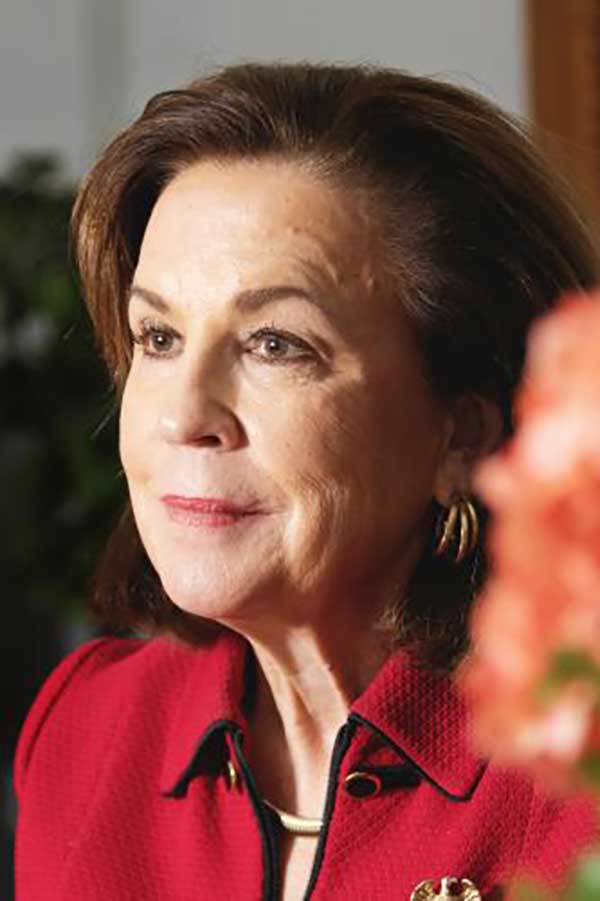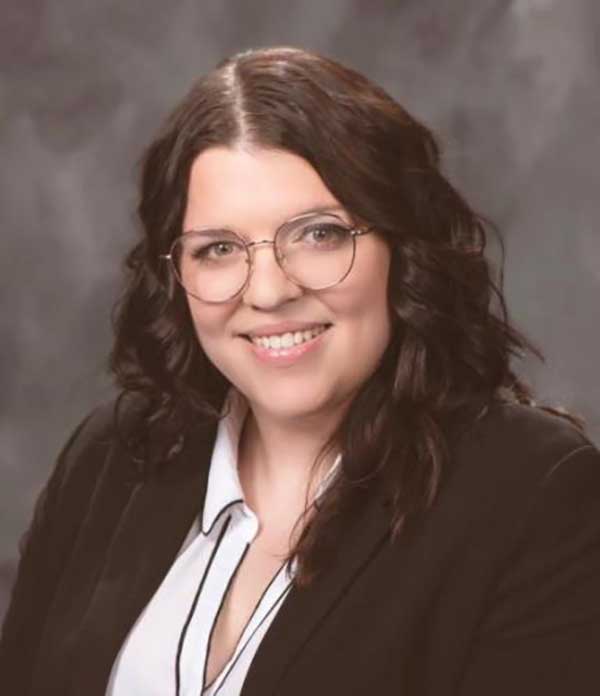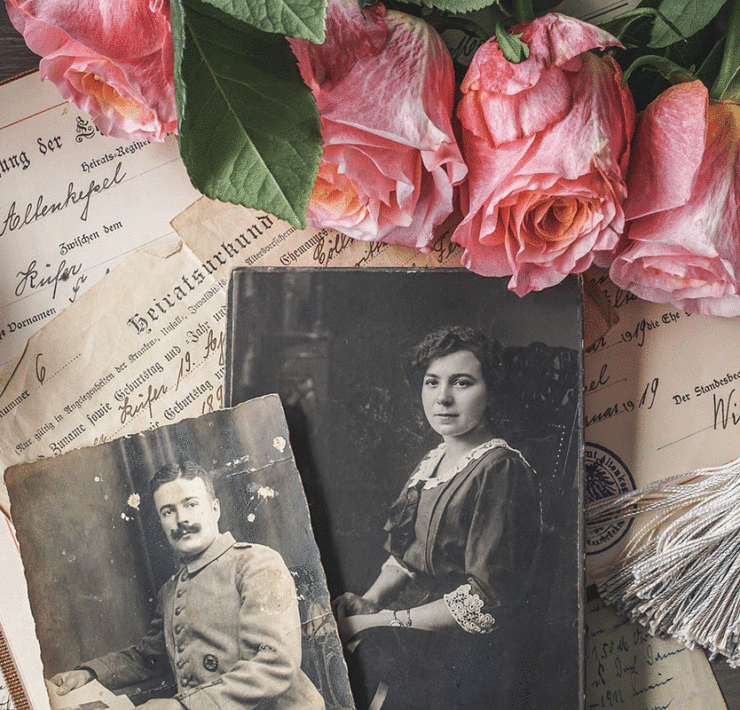Leveraging Justice

Mizzou law sets the stage for women breaking boundaries in law school and beyond
The University of Missouri School of Law is driving forward equality in the legal profession by cultivating an ever-growing number of successful women lawyers. Out of 422 judges in Missouri, 138 are women. That’s just over 30 percent. Three of those women — all Mizzou Law graduates — sit on the bench of the state’s supreme court. Others serve on the court of appeals, circuit courts and as commissioners.
Below the surface of their impressive pedigrees and titles, what many of these women have in common is they attended law school at a time when few women did.
Last year, the MU School of Law had a first-year cohort that consisted of 56 percent women — a trend that follows a national movement of more women choosing to attend law school, positioning these institutions as key stakeholders in educating attorneys that will go on to serve their communities in a myriad of ways.
Paul Litton, interim dean of the School of Law, said a legal community that mirrors the society it represents ultimately produces better results.
“The public’s perception of lawyers affects their perception of the legal system in general,” Litton said. “I think for people to trust the legal system and the rule of law, it’s better that the profession reflects society.”
As more women enter the legal field, they expand traditional avenues for representation, allowing for people to receive counsel from lawyers with similar lived experiences. Further, more gender diversity in the legal profession positions women to take on leadership roles in government. Economically, studies show that more gender diverse organizations are more profitable.
All this to say that women’s role in shaping the legal profession here in Missouri remains a pivotal one — something for which an education at Mizzou Law provides a solid foundation.

A legacy in the making
In 2020, women outnumbered men in law school classrooms across the country for the fifth consecutive year, a report by Enjuris found. In 2018, Mizzou Law’s first-year cohort was 38% women, which ramped up to 48 percent in 2019, 46 percent in 2020, and hit a majority in 2021 at 51 percent for the first time. This past year, women made up 56 percent of the law school’s first-year class. These numbers, however, represent decades of progress toward equality.
“I knew that there were considerably fewer women in my class, and that being a female lawyer was unusual,” said Missouri Supreme Court Judge Mary Russell, who graduated from the MU School of Law in 1983, a year when one-third of the graduating class was women. “Back then, I certainly didn’t know any female lawyers. When I was in law school, there had never been a woman on the Supreme Court of Missouri or the court of appeals. In fact, there was only a handful of women judges in the whole state on the trial bench. It was in 1981, when Justice Sandra Day O’Connor had been appointed to the U.S. Supreme Court. But otherwise, it was virtually unheard of for a woman to be a judge.”
Raised on a dairy farm outside of Hannibal, Missouri, Russell always excelled in school. After dabbling in journalism through her undergraduate studies at Truman State University, she interned for a congressman in Washington D.C. She was also a reporter for her local newspaper in Hannibal and was assigned to the courthouse beat. It was there she saw law put into practice by attorneys every day.
“I had a couple of girlfriends who were a year ahead of me in college,” Russell said. “And they would write me letters because we didn’t have email or texting then. They would say, ‘Law school is not too hard. You need to come down and try it – the water’s fine.’ So, I thought OK, OK, I’ll go to law school because I felt I could help people.”
It was during her time at Mizzou Law in the early 1980s that Russell began to realize she could contribute more to the legal community than she ever dreamed, but like other women in those days, she never dreamed of aspiring to a judgeship.
Although much of her new confidence came from excelling in the program, Russell was especially inspired by the leadership of one of the law school’s trailblazers — Rhonda Thomas, the only woman faculty member at the time — who, in 2017, received the Citation of Merit award for her outstanding contributions to the legal profession and community.
“She had practiced out in the real world instead of just teaching in the classroom,” Russell said. “She was smart, and because she was the only woman we had as a role model, we absorbed everything she did and said, including what she wore; she was a big influence on us.”
Facing the (legal) music
While Mizzou Law provided an educational oasis secluded from some of the harsher realities of the legal profession, for which the school’s longtime professors took pains to prepare law students, the industry came with a whole set of build-in challenges.
Women attorneys in the ‘80s were a novelty, a minority hire. During post-graduation job searches, if a firm already had a female attorney on staff, Russell said there was no point in interviewing there because they’d already met their perceived quota.
In a field historically dominated by men, women were expected to present as career-driven at all costs. Taking time off to get married or start a family was a strike against a woman attorney and often impacted opportunities for career advancement.
“The culture was that it was a male-dominated profession, and they (firms) just had not seen women in these roles and did not know if women could intellectually, physically and mentally handle the rigors of the practice because they had not seen women do that yet,” Russell said. “When I went back home to practice law in a small town, I was one of the first women litigators.”
After a career of more than four decades, half of which were spent as a Missouri Supreme Court judge, Russell is a role model and inspiration for women in law school and beyond as a pioneer in the legal community with an unsurpassed dedication to public service.
“I think women can be whatever they want to be,” Russell said. “And I think more women are thinking about graduate programs than probably ever before. And because of that, law school gets an increase of that pool.”
Championing success from the ground up
Law schools are tasked with preparing students for careers as first-rate attorneys. And that requires setting students up to pass the state bar exam.
For Wensdai Brooks, a first-generation law student who is poised to graduate in May, attending law school was a lifelong dream.

“I wanted to become a lawyer because I grew up in a single-parent household, and my mom filed for disability when I was really young, so I watched
her go through the disability court process and her lawyer was incredible,” Brooks said. “I realized that there are some doors you can only access when you have a lawyer walk you through them, and I wanted to be that for someone.”
It’s notable that while Mizzou Law has had the most gender diverse classes in its history, the quality of its students has never been higher. Brooks attributes this to the law school’s celebrated culture of collaboration and support.
“I had that image in my head of a scary, competitive place where everyone is trying to sabotage you, and it isn’t like that,” Brooks said. “From day one, it’s been very much a place of ‘your victory is my victory.’”
Whether a student is admitted to the law school involves a complex mix of factors, including standardized test scores, letters of recommendation and community service. Since 2018, median LSAT and GPA scores have only increased, ranging from medians of 157 and 3.49 in 2018 to 160 and 3.7 in 2022.
“It’s a small law school, so our students get to know each other really well,” Litton said. “If you talk to them, you don’t hear stories about cutthroat competitive attitudes. You get the sense that this is a collaborative place. And I think that aspect of our community is what attracts students of all backgrounds — they want to come to a place where there’s a sense of community, and I think our students take pride in our community.

Alongside fostering an environment that centers on camaraderie and teamwork, Mizzou Law has several avenues proven to empower law students and cater to their curiosities. Through opportunities to intern at the school’s three legal clinics, where students get real-world experience working for clients, to serving on the editorial boards of three published journals and joining student organizations, students have ample opportunities to broaden their knowledge outside the classroom.
Earlier this year, Brooks, who serves as the intraschool competition director of the Board of Advocates (BOA), a student-run organization at Mizzou Law that embodies a Missouri method-style structure to help students gain practical experience in various advocacy-based competitions, received a Leaders of Tomorrow Award for her leadership and commitment to making a difference in Missouri’s legal community.
As the flagship state school, part of Mizzou Law’s responsibility is to supply accomplished attorneys to the state legislature. And, while students come from various places, 70 to 75% of graduates find jobs in Missouri, where they stay to serve the community, said Jennifer McGarr, the assistant dean for Career Development and Student Services at Mizzou Law.
“One thing that’s important to me is that students understand that even if they don’t come into law school with sort of a ready-made, existing network of attorneys, that’s something you can figure out how to do,” McGarr said, explaining that it’s always gratifying to see how easy it is for students to connect with alumni and build relationships that will support them throughout their careers.
Although the decision to go to law school remains an involved one, having an existing network of support perhaps makes it slightly easier.
“I think that more women going to law school is a signal to the next generation that you belong in this building and this profession,” Brooks said. “We want to hear your voice; we want to stand up here with you. I think representation is really important, and I didn’t see other girls go into law school when I was a kid. At the beginning of this year, I had a young woman come up to me, and she said, ‘I don’t know if you remember me, but you were a teaching assistant in one of my undergraduate classes, and I came to law school because of you.’”
Brooks adds, “Just knowing that I’m showing the future generation that the world is their oyster is what it’s all about for me.”








